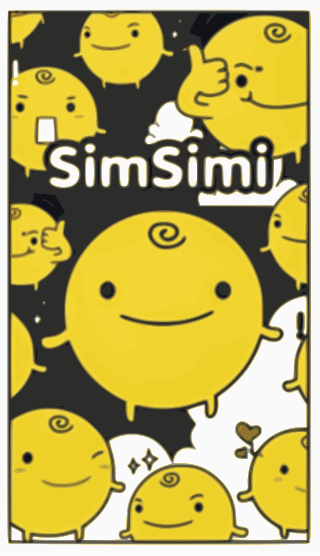
Artificial intelligence (AI) is intelligence—perceiving, synthesizing, and inferring information—demonstrated by machines, as opposed to intelligence displayed by humans or by other animals. "Intelligence" encompasses the ability to learn and to reason, to generalize, and to infer meaning. Example tasks in which this is done include speech recognition, computer vision, translation between (natural) languages, as well as other mappings of inputs.
The technological singularity—or simply the singularity—is a hypothetical future point in time at which technological growth becomes uncontrollable and irreversible, resulting in unforeseeable changes to human civilization. According to the most popular version of the singularity hypothesis, I. J. Good's intelligence explosion model, an upgradable intelligent agent will eventually enter a "runaway reaction" of self-improvement cycles, each new and more intelligent generation appearing more and more rapidly, causing an "explosion" in intelligence and resulting in a powerful superintelligence that qualitatively far surpasses all human intelligence.

A chatbot is a software application that aims to mimic human conversation through text or voice interactions, typically online. Modern chatbots are artificial intelligence (AI) systems that are capable of maintaining a conversation with a user in natural language and simulating the way a human would behave as a conversational partner. Such technologies often utilize aspects of deep learning and natural language processing.
The Loebner Prize was an annual competition in artificial intelligence that awards prizes to the computer programs considered by the judges to be the most human-like. The prize is reported as defunct since 2020. The format of the competition was that of a standard Turing test. In each round, a human judge simultaneously holds textual conversations with a computer program and a human being via computer. Based upon the responses, the judge must decide which is which.

Dabbala Rajagopal "Raj" Reddy is an Indian-born American computer scientist and a winner of the Turing Award. He is one of the early pioneers of artificial intelligence and has served on the faculty of Stanford and Carnegie Mellon for over 50 years. He was the founding director of the Robotics Institute at Carnegie Mellon University. He was instrumental in helping to create Rajiv Gandhi University of Knowledge Technologies in India, to cater to the educational needs of the low-income, gifted, rural youth. He is the chairman of International Institute of Information Technology, Hyderabad. He is the first person of Asian origin to receive the Turing Award, in 1994, known as the Nobel Prize of Computer Science, for his work in the field of artificial intelligence.
Intelligence has been defined in many ways: the capacity for abstraction, logic, understanding, self-awareness, learning, emotional knowledge, reasoning, planning, creativity, critical thinking, and problem-solving. More generally, it can be described as the ability to perceive or infer information, and to retain it as knowledge to be applied towards adaptive behaviors within an environment or context.

An artificial general intelligence (AGI) is a type of hypothetical intelligent agent. The AGI concept is that it can learn to accomplish any intellectual task that human beings or animals can perform. Alternatively, AGI has been defined as an autonomous system that surpasses human capabilities in the majority of economically valuable tasks. Creating AGI is a primary goal of some artificial intelligence research and companies such as OpenAI, DeepMind, and Anthropic. AGI is a common topic in science fiction and futures studies.
Jabberwacky is a chatterbot created by British programmer Rollo Carpenter. Its stated aim is to "simulate natural human chat in an interesting, entertaining and humorous manner". It is an early attempt at creating an artificial intelligence through human interaction.

Artificial intelligence (AI) has been used in applications to alleviate certain problems throughout industry and academia. AI, like electricity or computers, is a general purpose technology that has a multitude of applications. It has been used in fields of language translation, image recognition, credit scoring, e-commerce and other domains.

Progress in Artificial Intelligence (AI) refers to the advances, milestones, and breakthroughs that have been achieved in the field of artificial intelligence over time. AI is a multidisciplinary branch of computer science that aims to create machines and systems capable of performing tasks that typically require human intelligence. Artificial intelligence applications have been used in a wide range of fields including medical diagnosis, stock trading, robot control, law, scientific discovery, video games, and toys. However, many AI applications are not perceived as AI: "A lot of cutting edge AI has filtered into general applications, often without being called AI because once something becomes useful enough and common enough it's not labeled AI anymore." "Many thousands of AI applications are deeply embedded in the infrastructure of every industry." In the late 1990s and early 21st century, AI technology became widely used as elements of larger systems, but the field was rarely credited for these successes at the time.
Eugene Goostman is a chatbot that some regard as having passed the Turing test, a test of a computer's ability to communicate indistinguishably from a human. Developed in Saint Petersburg in 2001 by a group of three programmers, the Russian-born Vladimir Veselov, Ukrainian-born Eugene Demchenko, and Russian-born Sergey Ulasen, Goostman is portrayed as a 13-year-old Ukrainian boy—characteristics that are intended to induce forgiveness in those with whom it interacts for its grammatical errors and lack of general knowledge.
Artificial intelligence and music (AIM) is a common subject in the International Computer Music Conference, the Computing Society Conference and the International Joint Conference on Artificial Intelligence. The first International Computer Music Conference (ICMC) was held in 1974 at Michigan State University. Current research includes the application of AI in music composition, performance, theory and digital sound processing.

Cleverbot is a chatterbot web application that uses machine learning techniques to have conversations with humans. It was created by British AI scientist Rollo Carpenter and launched in October 2008. It was preceded by Jabberwacky, a chatbot project that began in 1988 and went online in 1997. In its first decade, Cleverbot held several thousand conversations with Carpenter and his associates. Since launching on the web, the number of conversations held has exceeded 150 million. Besides the web application, Cleverbot is also available as an iOS, Android, and Windows Phone app.
Machine ethics is a part of the ethics of artificial intelligence concerned with adding or ensuring moral behaviors of man-made machines that use artificial intelligence, otherwise known as artificial intelligent agents. Machine ethics differs from other ethical fields related to engineering and technology. Machine ethics should not be confused with computer ethics, which focuses on human use of computers. It should also be distinguished from the philosophy of technology, which concerns itself with the grander social effects of technology.

SimSimi is an artificial intelligence conversation program created in 2002 by ISMaker. The application has led to controversy and protests in Thailand for some of its responses containing profanity and criticisms of leading politicians. In April 2018, SimSimi was suspended in Brazil due to accusations of sending inappropriate messages, such as sexual content, bullying practices and even death threats, being labeled as "dangerous" mainly due to its popularity among children, and according to its developer, the suspension of the app in the country "was inevitable because the SimSimi app, at least in the last few days, had a significant negative social impact in Brazil” It grows its artificial intelligence day by day assisted by a feature that allows users to teach it to respond correctly. SimSimi, pronounced as "shim-shimi", is from a Korean word simsim (심심) which means "bored". It has an application designed for Android, for Windows Phone and for iOS.

Existential risk from artificial general intelligence is the hypothesis that substantial progress in artificial general intelligence (AGI) could result in human extinction or another irreversible global catastrophe.

This glossary of artificial intelligence is a list of definitions of terms and concepts relevant to the study of artificial intelligence, its sub-disciplines, and related fields. Related glossaries include Glossary of computer science, Glossary of robotics, and Glossary of machine vision.

Synthography is a proposed term for the generation of digital photos using a generative adversarial network. City University of Hong Kong photography professor Elke Reinhuber coined the term in her 2021 conference paper "Synthography – An Invitation to Reconsider the Rapidly Changing Toolkit of Digital Image Creation as a New Genre Beyond Photography," writing "As soon as a generative adversarial network (GAN) is trained to create an image which resembles a photograph, I propose to better describe it with the term synthograph." This is distinct from other graphic creation and editing methods in that synthography uses artificial intelligence art and text-to-image models to generate synthetic media. It is commonly achieved by prompt engineering text descriptions as input to create or edit a desired image.





